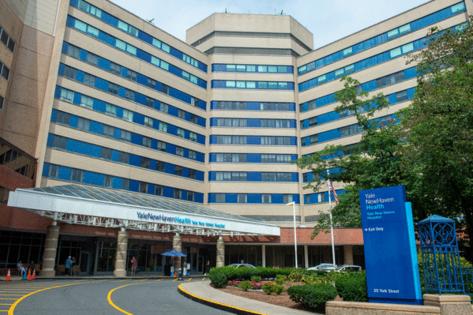A doctor sees new hope for Alzheimer's disease patients and families. He wants you to know why
Published in Senior Living
HARTFORD, Conn. -- The combination of a recently approved blood test for detection of Alzheimer’s disease combined with two medications that slow progression of the disease is drastically improving outcomes for patients and their families, according to a neurologist and surgeon at Yale New Haven Health.
Dr. Ausim Azizi is among those seeing the overall early results, as Yale New Haven Hospital is in the forefront of research and clinical care, he said, calling it “tops in the country,” and home to a federally-funded Alzheimer’s Disease Research Center.
“We have started 350 people on these drugs,” he said. “Everybody I see feels better,” and feel, along with their families that they have “more control” of their lives.
With easy early detection and treatment patients may never reach the end stage of the disease, he said. The medication slows the disease progression and maintains what patients have, longer, he said.
In terms of quality of life, someone 75 years old, retired with significant memory problems, can still have friends and, “a good life,” with early detection and treatment, Azizi said.
Azizi said there is no cure for Alzheimer’s, but the disease can be “modified” with medications from two different companies.
The medications approved about two years ago are Lecanemab, also known as Leqembi and Kisunla, also known as Donanemab. The drugs are administered through an IV infusion that targets amyloid plaque in the brain.
Azizi said confirmation of Alzheimer’s, as opposed to other forms of dementia, is needed to treat with those medications and, until the blood test diagnosis, was complicated, stressful, and expensive, Azizi said.
The blood test, Lumipulse G, for Alzheimer’s Disease, approved in late May, can confirm the disease with 98% accuracy, he said.
Prior to the blood test, doctors confirmed the disease by drawing spinal fluid to test for chemicals or through a pet scan, Azizi said.
The blood test is not predictive and the test is for people 55 and older suffering cognitive issues, he said. Confirmation of Alzheimer’s is needed for the medication to be prescribed.
That early detection is key, he said, because while the medications don’t cure Alzheimer’s, they slow progression.
According to the Alzheimer’s Association, it is a progressive disease, “where dementia symptoms gradually worsen over a number of years. In its early stages, memory loss is mild, but with late-stage Alzheimer’s, individuals lose the ability to carry on a conversation and respond to their environment.
“On average, a person with Alzheimer’s lives four to eight years after diagnosis but can live as long as 20 years, depending on other factors,” according to the association.
The association notes that its “2025 Alzheimer’s Disease Facts and Figures” report found that “nearly 4 in 5 Americans would want to know if they had Alzheimer’s disease before it impacted their lives,” which means “91% of Americans say they would want to take a simple test — such as a blood biomarker test — if it were available,” because that would then open access to early treatment.
Azizi said that, in Alzheimer’s, sticky proteins or plaques are found on the brain that he likened to rust on an engine.
“The wheels don’t turn, things are squeaky,” he said.
People with the plaques have trouble with cognition, sequencing events and their memory noticeably going, he said.
The new medications “clear the rust,” and slow progression, but the damage already done remains, he said.
Cognitive problems can develop with other forms of dementia, but the same medications don’t work for those. He said 70% of the time when there are cognitive problems, it’s Alzheimer’s.
“Before we treat we ask, do you have biologic evidence?,” Azizi said.
He said of early treatment, “It’s huge for the family.”
Simple lifestyle changes can also improve outcomes, he said.
He said 10 factors that boost the brain and help prevent dementia include:
⦁ Control blood pressure, low number should be below 80
⦁ Control blood sugar to around 100
⦁ Control cholesterol, total fasting less than 200
⦁ Adequate and restful sleep
⦁ Diet, eat mostly unprocessed plants
⦁ Maintain a healthy body weight
⦁ If you are smoking, stop
⦁ Reduce alcohol intake – maximum of 3 to 4 drinks per week
⦁ Increase physical activity, including daily aerobic exercise
⦁ Engage in enjoyable and healthy social and mental activities
©2025 Hartford Courant. Visit at courant.com. Distributed by Tribune Content Agency, LLC.
























Comments